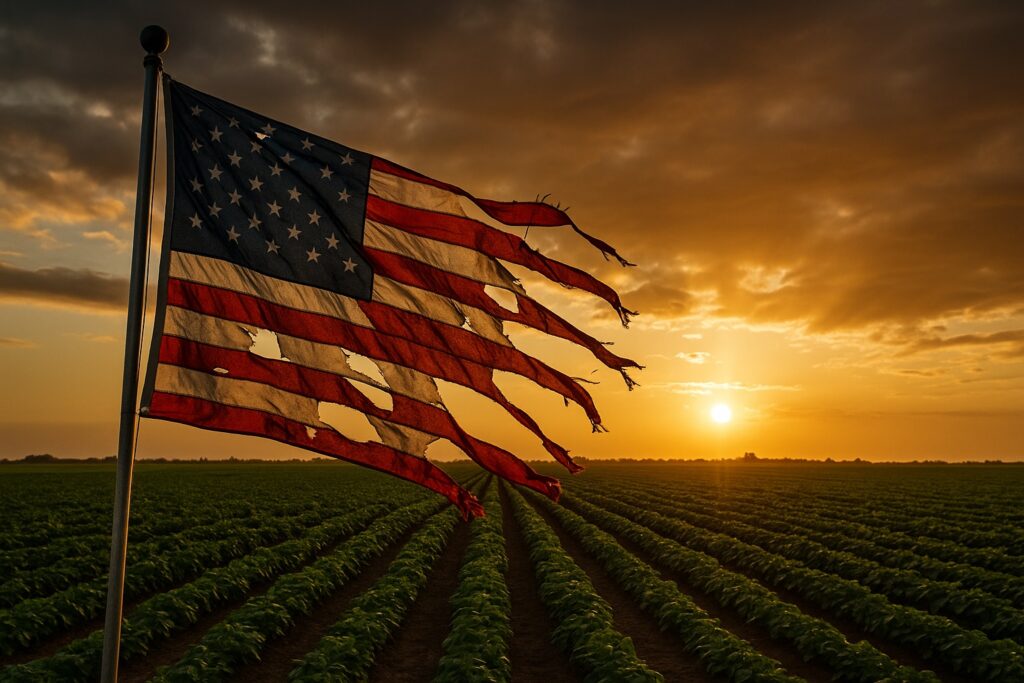The global response to COVID-19 has sparked significant controversy, with debates raging over whether the pandemic represents a genuine public health threat or a vehicle for governments and global elites to curtail democratic rights. This article explores the various perspectives on the origins of COVID-19, its impact compared to other causes of death, and the broader implications for society, including recent revelations about key figures involved in the pandemic response, the controversial response to protests in Canada, and the ongoing concerns about the COVID-19 vaccines.
The Origins of COVID-19: Natural or Engineered?
The origin of COVID-19 has been the subject of intense speculation. While the official narrative suggests that the virus emerged from a wet market in Wuhan, China, possibly through a bat, some have questioned this explanation. Critics argue that humans have consumed wild animals for millennia without such a pandemic, leading some to believe that the virus might have been artificially created.
One theory posits that COVID-19 was developed as a biological weapon in a Chinese laboratory, possibly as part of a larger strategy to gain global dominance. According to this theory, the virus was accidentally released before an antidote was fully developed. Others speculate that the virus could have been mishandled or released by outside forces attempting to sabotage Chinese efforts. While these ideas remain speculative, they underscore the uncertainty and fear surrounding the virus’s origins.
Damning Revelations: Dr. Fauci and Congressional Hearings
In recent developments, Dr. Anthony Fauci, the former head of the National Institute of Allergy and Infectious Diseases (NIAID), and his first assistant came under intense scrutiny during congressional hearings. Lawmakers questioned them about their handling of the pandemic and the origins of the virus. Of particular concern were a series of damning emails that had been exchanged between Fauci, his assistant, and other key figures.
The emails, which were obtained through Freedom of Information Act (FOIA) requests, revealed troubling details, including discussions about the potential origins of the virus and efforts to control the narrative around it. Some of the most concerning emails suggested that there were internal doubts about the natural origin theory early on, despite public statements to the contrary.
Moreover, allegations of bribery have surfaced, with some emails hinting at financial incentives offered to individuals in exchange for their silence or cooperation in shaping the public narrative. These revelations have fueled suspicions that key figures in the U.S. government’s pandemic response may have been involved in a cover-up or, at the very least, were not fully transparent with the public.
The Canadian Trucker Convoy and the Controversial Response
The COVID-19 pandemic also led to significant unrest and protests around the world, with one of the most notable being the Canadian Trucker Convoy in early 2022. The convoy, composed of truckers and supporters protesting vaccine mandates and other COVID-related restrictions, traveled across Canada and culminated in a large-scale demonstration in the capital, Ottawa.
The protests quickly became a focal point for broader dissatisfaction with the government’s handling of the pandemic. Many Canadians, particularly those on the political right, felt that the mandates and restrictions infringed upon their personal freedoms and were disproportionate to the actual threat posed by the virus.
In response to the protests, Prime Minister Justin Trudeau controversially invoked the Emergencies Act, a law previously known as the War Measures Act, which had never before been used in peacetime. This act granted the government extraordinary powers to quell the protests, including freezing the bank accounts of those involved and authorizing the police to disperse the demonstrators.
Critics of Trudeau’s decision argued that invoking the Emergencies Act was an overreach of government power and an unnecessary escalation. They claimed that it set a dangerous precedent for how future protests and dissent could be handled, effectively eroding democratic rights under the guise of maintaining public order.
Adding to the controversy were rumors and allegations that Trudeau and other government officials had financial interests in the pharmaceutical companies that produced COVID-19 vaccines. Some speculated that these interests could have influenced the government’s aggressive promotion of the vaccines and the harsh response to those who opposed mandates. Although these claims have not been substantiated, they have contributed to the distrust many Canadians feel towards their government.
Vaccine Side Effects: A Growing Concern
As the global vaccination campaign rolled out, the COVID-19 vaccines were initially hailed as a major breakthrough in the fight against the pandemic. However, over time, reports of serious side effects have emerged, leading to growing concern and legal action.
According to various news outlets, including the CBC, and reports from doctors and healthcare professionals, some patients who received the COVID-19 vaccines have experienced severe adverse effects. These side effects include:
- Blood Clots: There have been numerous reports of individuals developing blood clots after receiving certain COVID-19 vaccines, particularly those using adenovirus vector technology. In some cases, these blood clots have led to serious health complications and even death.
- Myocarditis and Pericarditis: Inflammation of the heart muscle and the lining around the heart has been reported, particularly in younger males following mRNA vaccination. While most cases are mild, some have required hospitalization.
- Cancers: Some anecdotal reports and case studies have suggested a potential link between the vaccines and the development or acceleration of certain cancers. However, these claims are still under investigation and have not been conclusively proven.
- Sepsis: A small number of vaccine recipients have experienced severe infections leading to sepsis, a life-threatening condition caused by the body’s extreme response to infection.
- Strokes: Cases of stroke have also been reported following vaccination, raising concerns about the vaccines’ impact on cardiovascular health.
These reports have led to a wave of lawsuits being filed against governments and pharmaceutical companies. Plaintiffs argue that the vaccines were not sufficiently tested before being released to the public and that they were not adequately informed about the potential risks. Critics of the vaccine rollout claim that the rush to distribute the vaccines, driven by the urgency of the pandemic, compromised the usual safety protocols.
Governments and pharmaceutical companies have defended the vaccines, emphasizing that the benefits of vaccination in preventing severe COVID-19 far outweigh the risks of side effects, which they describe as rare. However, the ongoing legal battles and public skepticism highlight the challenges of maintaining public trust in the face of unprecedented circumstances.
The Real Threat: How Deadly is COVID-19?
As COVID-19 spread, governments and the media emphasized the potential danger of the virus, leading to widespread lockdowns and unprecedented restrictions on daily life. However, some argue that the reaction has been disproportionate when compared to other leading causes of death.
Current Global Statistics
As of 2024, the World Health Organization (WHO) reports that COVID-19 has resulted in over 7 million deaths worldwide. The total number of confirmed cases globally exceeds 770 million, with the United States reporting over 1.1 million deaths and 104 million confirmed cases. While these numbers are significant, they are still lower than the global death toll from other leading causes, such as heart disease and cancer.
Comparison to Other Leading Causes of Death
According to the WHO, the top causes of death worldwide in recent years have included:
- Cardiovascular Diseases: Responsible for nearly 18 million deaths per year, making it the leading cause of death globally.
- Cancer: Accounts for approximately 10 million deaths annually.
- Chronic Respiratory Diseases: Cause around 4 million deaths per year.
- Lower Respiratory Infections: Result in about 2.6 million deaths annually.
- Diabetes: Leads to over 1.5 million deaths each year.
In the United States, for example, heart disease continues to be the leading cause of death, responsible for approximately 697,000 deaths annually, followed by cancer, which accounts for about 609,000 deaths per year.
COVID-19 in Context
The U.S. Centers for Disease Control and Prevention (CDC) reports that in 2023 alone, COVID-19 led to approximately 100,000 deaths in the United States, down significantly from the pandemic’s peak in 2020. This reduction reflects the widespread availability of vaccines, improved treatments, and a better understanding of the virus. However, questions still persist regarding the accuracy of death attribution, with ongoing debates about how many deaths were directly caused by COVID-19 versus those from other underlying conditions exacerbated by the virus.
Global Response: A Tool for Control?
The disparity between COVID-19’s death toll and that of other diseases has led some to speculate that the pandemic is being used as a pretext for governments and global elites to exert greater control over populations. Critics argue that the media’s focus on COVID-19, coupled with the imposition of lockdowns, mask mandates, and social distancing, is part of a broader strategy to erode democratic rights and consolidate power.
Some believe that these measures are part of a larger agenda to push for globalization and the weakening of national sovereignty. The argument is that by creating fear and uncertainty, governments can justify the suspension of civil liberties and the implementation of policies that would otherwise be unacceptable.
The Bigger Picture: Lessons from History
The response to COVID-19 has raised concerns about the potential for history to repeat itself. Critics warn that just as the Treaty of Versailles led to the rise of Adolf Hitler and the subsequent devastation of World War II, the current global crisis could have unforeseen consequences. The fear is that democratic nations, faced with the erosion of freedoms and growing discontent, could fragment or even collapse.
Moreover, some view the promotion of multiculturalism and global governance as part of an effort to dilute national identities and create a more homogenized world. In this context, COVID-19 is seen as the beginning of a broader push towards a globalized society, where individual rights and national sovereignty are increasingly subordinated to a centralized authority.
Conclusion: A Complex and Uncertain Future
The COVID-19 pandemic has undoubtedly had a profound impact on the world, but its long-term implications remain unclear. Whether the virus is a genuine public health threat or a tool for control, the response to it has exposed deep divisions and raised important questions about the balance between public safety and individual freedom.
As the world continues to grapple with the effects of the pandemic, it is crucial to remain vigilant and critically assess the actions of governments and global institutions. The lessons of history remind us that the erosion of democracy often begins with the erosion of individual rights, and it is up to the people to ensure that those rights are preserved.
In the words of Winston Churchill, “Those who fail to learn from history are doomed to repeat it.” The challenge now is to learn from the past while navigating an uncertain future.
With the recent revelations about Dr. Fauci, the Canadian Trucker Convoy, the controversy surrounding Prime Minister Justin Trudeau’s response, and the growing concerns about vaccine side effects, the need for transparency and accountability in handling the pandemic has never been more apparent. The public must demand answers and ensure that the response to COVID-19 serves the interests of all people, rather than a select few.




